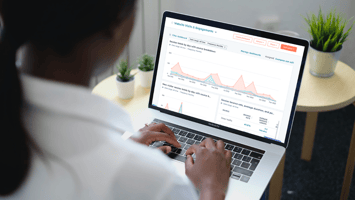Do Not Overlook These Marketing Channels for Your Small Business

From Google My Business to blogging, here’s how you can put your company’s digital footprint to work.
Starting and operating a small business comes with many challenges. What sets you apart? Who will you hire? Where will you find customers? Having the following marketing channels in place will make your job easier and ensure that customers can find you.
Active Company Social Media Pages
Today, social media is an indisputable necessity for most company marketing stacks. The platforms you should start with will depend on your target market, and if you’re ever unsure, you can consult an expert. I recommend creating a company LinkedIn and Facebook page no matter your industry or audience so that employees can link the page to their profiles (another traffic generator). When starting a social media page for your brand, ensure necessary operating and contact information is easily accessible for your potential customers. Most platforms will allow you to write a short bio that should concisely summarize what you do or what makes you different. It’s not enough to simply set up the pages, though, the key word of this section is “active.” Consider the lifespan of a post on each platform and aim to have another post uploaded when the last one dies out. Managing active social media accounts is a full-time job in itself, and if you don’t have the bandwidth to take it on internally, you can partner with us. These platforms will ensure that anyone searching for your business or services is able to find you and contact you when they are ready to make a purchase.
Google My Business Profile
This step is especially relevant if your business has a physical location or office. Have you ever Googled, “gyms near me” or “pizza near me” or perhaps both in the same day? Chances are, Google showed you a map and the locations of the related Google Businesses profiles that were closest to you. If you do not have a profile, then you’re immediately behind in the search results. Luckily, Google will allow you to create and manage your profile for free here. You can include your address and contact information to make it easy for potential customers to reach you. If you have an allocation for search engine marketing in your budget, you can even run a paid campaign to ensure your business appears first on the list.
Website and Blog
Maintaining an active blog is a great way to expose your business to new customers, differentiate your business from competitors, and engage customers who are still in the purchase funnel. By creating written content about a variety of topics on your website, you can ensure potential customers who are searching specific keywords eventually land on your page. Viewers who follow along for the helpful information in your blog will likely become customers one day. Maintaining a blog is also a simple way to create shareable updates about your business or about your industry. Your advocates will be able to interact with content on your site and share it to their social media news feeds or send a link to friends. This will work wonders for your brand exposure and allow you to capitalize on word-of-mouth marketing in the digital age.
There’s no fail-proof guide to starting and operating a successful small business but it helps when your digital footprint is doing some of the work for you. I hope these best practices are helpful in some way; if so, let me know in the comments! As always if you’d like to connect or partner on an upcoming campaign, contact us here.


